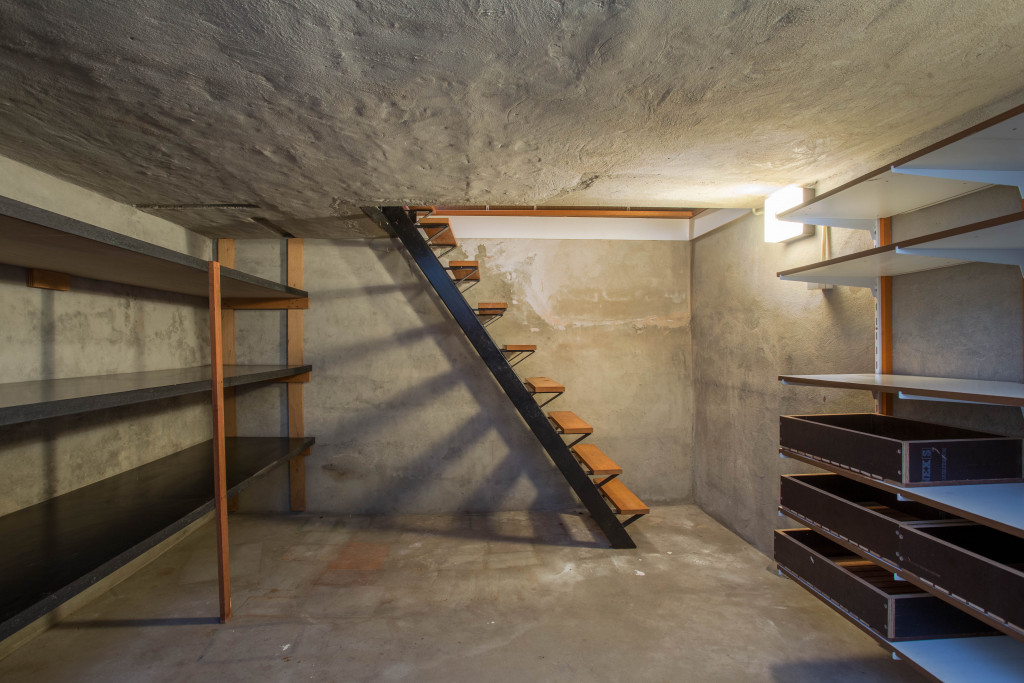For novice and experienced wine enthusiasts alike, the basement is a natural and convenient space for storage. You can have it finished or take a DIY approach if you’re comfortable working with concrete sealers and leveling techniques. As long as you have some basic insulation and moisture control in place, you’re good to go.
But with the rising value of floor space, homeowners have been seeking to turn their finished basements into multi-functional spaces. They aren’t just for storage anymore. People want to create entertainment dens and man-caves, vanity bathrooms, and spas. Sometimes, they even turn that extra space into a bedroom for guests or boarders.
These ideas can be great, but they tend to work against the qualities of a typical basement. Finished or not, most basements aren’t suited to be comfortably occupied for long periods. They are dark, musty, cold, and poorly ventilated.
Many of those qualities that make for excellent wine storage will require energy consumption to be overcome and transform a basement into something else. Instead of going against the grain, why not play to those strengths? You can still come up with something creative and functional.
Your private gym
A basement makes an excellent home fitness center. Sure, you’ll want some heating, ventilation, and illumination, but not much. The WHO recommends 150 minutes of moderately intense physical activity each week for adults aged 18-64. That’s just 30 minutes every day on weekdays. Even when you’re feeling particularly energetic, you probably won’t need more than an hour of energy consumption to keep the place cozy.
More to the point, you’ll be working out, not lounging about. The space shouldn’t get too comfortable. You can get away with just the minimum: a finished concrete floor and walls, dim lights, and adequate humidity regulation. The rest of your money is better off being invested in some decent equipment, like a squat rack, bench press, or rowing machine.
Having a home gym in your basement is convenient. You won’t have any excuses not to show up each day. And it gives you privacy. There’s no need to worry about looking silly, falling over, or making strange noises as you struggle with reps. Plus, you can swing kettlebells around or attempt to load up those barbells without fear of damaging anything other than the floor itself.

Craft studio or workshop
Some hobbies require plenty of good lighting and open space. Consider painting, for instance. You can’t afford to get your colors wrong, which is why professional artist studios want to let the daylight in. Moreover, the toxic fumes of certain paints and solvents need to be vented out. It’s not a great fit for your basement space.
But other crafts can slot seamlessly into the underground conditions. Woodworking, for instance, requires plenty of elbow room. You also need enough space to fit in your workbench and other tools. Instead of displacing your car from the garage, try working out of the basement. The noises will be muffled, and as a bonus, leaving sawdust around will help absorb excess moisture.
Film photography is another hobby that finds a natural home in your basement. Due to the advent of digital photography, many enthusiasts can find bargains on film equipment. And as part of learning the post-processing aspect, they want to set up their own darkroom. Where else but in the darkest room of the house?
Grow a mushroom garden
Any home with a basement will require a baseline of regular inspection and maintenance. You can never take any chances with excess moisture. Left unchecked, it creates the perfect conditions for mold formation.
But damp, dark, and cool environments are also the favorite of mold’s distant cousins: mushrooms. And if you take care to cultivate the right type of mushrooms, you can farm a delicious nutritional supplement right underneath your home.
Growing mushrooms in your basement can be a bit tricky, but the same could be said of growing most vegetables in your garden. An easy variety, such as oyster mushrooms, will be perfect for getting your feet wet. You can start with an inoculation kit, which can be purchased commercially, and some substrate material. Plant matter works fine, even tissue paper, coffee grounds, or sawdust.
In an age when housing costs climb steadily higher, few homeowners like the thought of letting extra space go to waste. The basement doesn’t have to be idle storage, but you’ll save a lot on energy costs if you play to its best attributes.

